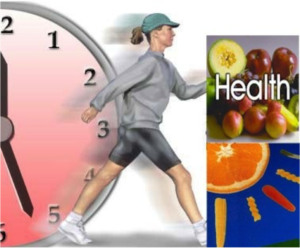 Our family began naming our summers in 2002 when our daughter was navigating treatments for breast cancer. The first summer when she was doing chemotherapy became known as the “summer of self-sufficiency.” Her children, (ages 11, 9, and 3) needed to not rely so much on their mother and learn to do more for themselves. The second summer, when she underwent a bone marrow transplant became the “summer of sanitation.” Due to her fragile immune system, we all had to be vigilant about keeping surfaces and ourselves germ-free. No one could visit her if they had even, a simple cold.
Our family began naming our summers in 2002 when our daughter was navigating treatments for breast cancer. The first summer when she was doing chemotherapy became known as the “summer of self-sufficiency.” Her children, (ages 11, 9, and 3) needed to not rely so much on their mother and learn to do more for themselves. The second summer, when she underwent a bone marrow transplant became the “summer of sanitation.” Due to her fragile immune system, we all had to be vigilant about keeping surfaces and ourselves germ-free. No one could visit her if they had even, a simple cold.
Now that I know my recovery from a broken shoulder will take the entire summer, I’ve named the summer of 2015 my “summer of disability.” It’s not how I wanted to spend the summer but I’m working on being a grown-up about it. After all, the measure of a person’s character is how we behave when we don’t get what we want.
I’m learning alternative ways of doing everyday tasks and novel approaches to getting around town. (Think: walking, rides from friends, limousines services, and now, Uber.) I’m also challenged as anyone with a handicap is, to look again at my abilities. What are things I can still do? And even better, what things need doing that, when I’m fully able-bodied, I don’t take the time to do? (Think: sort and give away unneeded clothing, organize photos, clean out office files, finish the article I’ve been working on.)
My daughter Corinne told me once that struggling with challenges to her health had caused her to realize she had been prideful about her state of fitness and good health. A student of the bible I think she was influenced by proverb 16:18, often shorten to “Pride goes before the fall.” I feel a sisterhood with her on that, but I don’t see it as automatically a fault. Maintaining ourselves in good health requires a great deal from us, as does rehabilitating our broken parts after an injury. We should take pride in these accomplishments while recognizing we may not be seeing the whole picture. Tough stuff can happen in spite of our best efforts.
Jim Collins in his book, How the Mighty Fall looks at institutional decline like a disease: harder to detect but easier to cure in the early stages; easier to detect but harder to cure in the later stages. http://www.jimcollins.com/books/how-the-mighty-fall.html My hope for myself is that, when I return to full-bodied functioning, (goddess willing) I will not take that precious gift for granted. The summers, winters, springs and falls I’ve spent accompanying my adult children and dearest friends through life threatening illnesses have taught me that life is precious, even when our bodies are functioning less than perfectly. And three quarters of a century of living has taught me that we do our best, but we are able-bodied and healthy until we are not.

